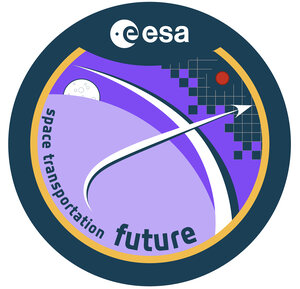Interplanetary GNSS
Many of the missions planned within the frame of the Aurora Exploration Programme will require precise positioning, navigation and timing. Orbiting spacecraft, descent/ascent vehicles, surface activities (with or without mobility), aerobots and balloons would greatly benefit from a planet-wide, innovative and cost-effective positioning and navigation system. In addition to this, there is a strong real-time computation need due to the large distances involved in communications between Earth and Mars.
A precise and real-time Global Navigation Satellite System (GNSS) would greatly enhance future interplanetary mission capabilities as it would comprehensively fulfil the requirements of the activities mentioned above. In a similar way as navigation activities here on Earth have been made easier since the wide use of GPS and soon Galileo, planetary activities would become much more sustainable, autonomous and efficient than before with the aid of such a dedicated system. However, although the launch and management of GPS satellites into Earth orbit is relatively commonplace, performing this for other planetary bodies is a large step ahead.
The primary objective driving this activity is to perform a preliminary design study along with a possible mission roadmap of a Global Navigation Satellite System into Martian orbit. The study focuses on a reference Martian GNSS that would span several decades in which the planned Aurora missions would be carried out. The baseline system is an evolving constellation of navigation satellites.
At first, the needs of Aurora missions are identified for a better understanding of the user requirements. Follow-up work aims at defining the system architecture and designing the constellation itself. Then, a mission analysis is performed leading to launch scenarios of the whole constellation, spacecraft preliminary design as well as suitable ground and user segment definition.
It is acknowledged that such a system would greatly improve mission safety and reliability, which is highly desirable for a sustainable and long-term space exploration programme.
| Start |
Expected or actual duration | Status | Prime contractor |
|---|---|---|---|
| Jan '03 | 11 months | Completed | Deimos Space |
Executive Summary















 Germany
Germany
 Austria
Austria
 Belgium
Belgium
 Denmark
Denmark
 Spain
Spain
 Estonia
Estonia
 Finland
Finland
 France
France
 Greece
Greece
 Hungary
Hungary
 Ireland
Ireland
 Italy
Italy
 Luxembourg
Luxembourg
 Norway
Norway
 The Netherlands
The Netherlands
 Poland
Poland
 Portugal
Portugal
 Czechia
Czechia
 Romania
Romania
 United Kingdom
United Kingdom
 Slovenia
Slovenia
 Sweden
Sweden
 Switzerland
Switzerland


























